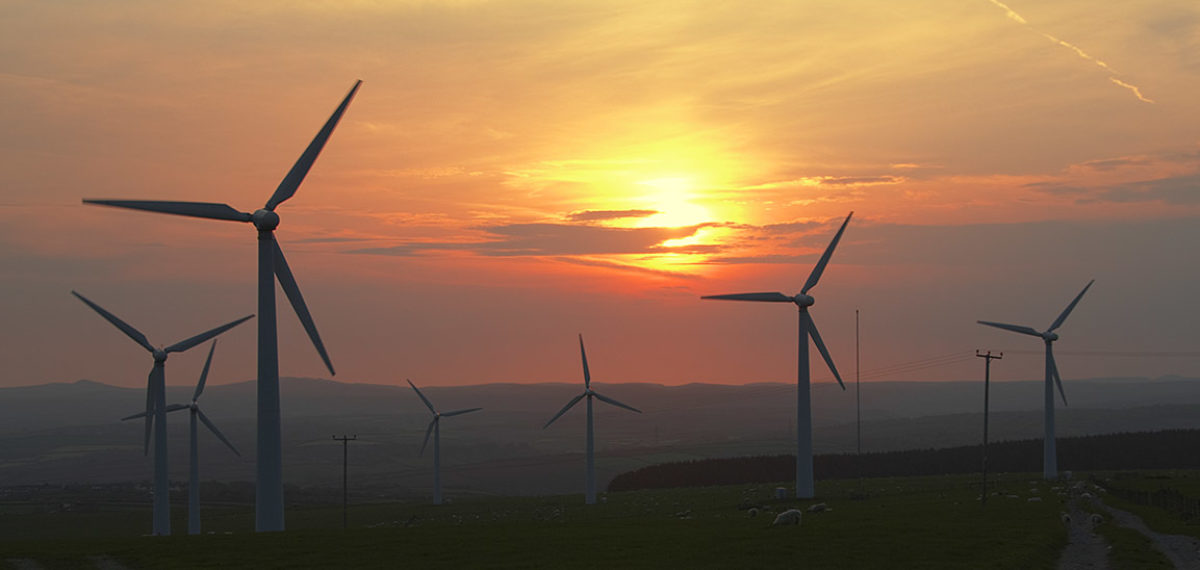Drunk on the latest fossil fuel energy crisis, the UK Government has handed the British public a giant nuclear hangover that will leave the country scrabbling for renewable energy solutions.
Boris Johnson has promised 40 GW of offshore wind by the end of the decade, which, when added to other renewable energy sources, will generate over three-quarters of current levels of UK electricity consumption. But this growth could be threatened by the nuked-up knee jerk reaction to the current natural gas price crisis that will plunge the energy budget into a massive deficit and leave the electricity system dangerously unbalanced. After fossil fuel prices subside back towards their more usual levels, this will constitute a giant hangover.
The last time we had an energy crisis, in 2008 and 2011 when oil prices spiked, the UK ended up with what was regarded as a bad deal to pay (in today’s money) over £110 per MWh for Hinkley C over 35 years. That was the hangover after the last crisis. This time it is likely to be worse as the Government recycles its own half-truths to generate a colossal public sector loss in building more nuclear power plant at Sizewell C and, then, it hopes, at Wylfa. These plans would, eventually, ensure that around 20 percent of UK electricity comes from nuclear power, but also ensure that efforts to balance the much cheaper renewable energy will be poorly developed at best, and ignored at worst.
Sizewell C’s construction might start in 2024 and, if it is finished in record time for a large nuclear power plant (8 years in the case of Sizewell B which started generating in 1995), it will start generating in 2032. That, however, assumes that EDF can build two nuclear power projects at the same time (ie as well as Hinkley C), which seems unlikely, so construction of Sizewell C may not start until Hinkley C is generating, which is unlikely to be until 2027. So even if things go relatively well, Sizewell C s unlikely to be generating until 2035. A project at Wylfa, which the Government hopes will be built by Westinghouse (which went bankrupt in 2017 whilst trying to build this type of plant in the USA) is likely to be even longer in its gestation. It might be generating around 2040. Really I hope to live to see it happening, but for no other reason because it assures me of living at least another 20 years or so!
Meanwhile the Government is being wound up in knots by its band of nuclear-friendly advisers willing it to adopt what will be a public sector black hole, all along excused in the name of ‘saving money’. Essentially the Government will be loading all the costs of cost overruns on the electricity consumer to guarantee high returns to the private sector. At the end of it the nuclear generators will, despite the immense money paid to construct the power plant already from consumers’ pockets, be paid a high price. This will be paid for so-called ‘baseload’ energy which means there will be no flexibility of generation, which means that far from balancing renewable energy it will actually push a lot of it offline. See our report last year on how nuclear power switches off windfarms.
The notion that nuclear power will help balance variable renewable energy will destroy efforts, which might otherwise be seriously focussed, to develop a system with flexibility and storage. Not to mention putting more money into incentivising heat pumps, insulation etc etc. The Government has spurned efforts to support natural gas storage, so it seems unlikely to support efforts to store renewable energy in the form of hydrogen, synthetic fuels or various other options, as we discuss in our briefings.
The Conservatives have not, this century, liked energy storage, it seems because state support for it would conflict with the ‘free’ trade in natural gas around the world. That’s not worked well recently of course. But this competitive ideology sits uneasily with the Government’s support for nuclear power, which has nothing to do with competition or value for money. But when the words ‘security’ and ‘nuclear’ are mentioned the Conservative Government’s traditional military and ‘strong state’ values are gelled together. It is a heady brew which when drunk during energy crises and eagerly recommended by nuclear friendly advisers, will have them falling over, completely inebriated in their salutations for support for whatever state-finance hungry nuclear corporation happens to be handy.
by David Toke

Absolutely! Once a nuclear power plant is up and running, it costs almost the same to run 24/7 as 0/0. So, why not run it 24/7?Try to At that point, VRE sources that supply that energy are as useful as tits on a bull. They are a redundant source of occasional energy.
Nuclear power plants are not built to “save money”. They are built to avoid the disastrous effects of wind droughts – the present problem with NO solution, except natural gas and coal.
The object of these activities is NOT to promote wind energy. It is to reduce CO2 emissions. Try to focus on THAT issue and not your favorite toy.
My understanding is that nuclear power is attractive to the government as it provides a cover/skills for nuclear weapons, which appears to be one of the requirements of sitting on the UN Security Council. Hence it makes the UK look big.